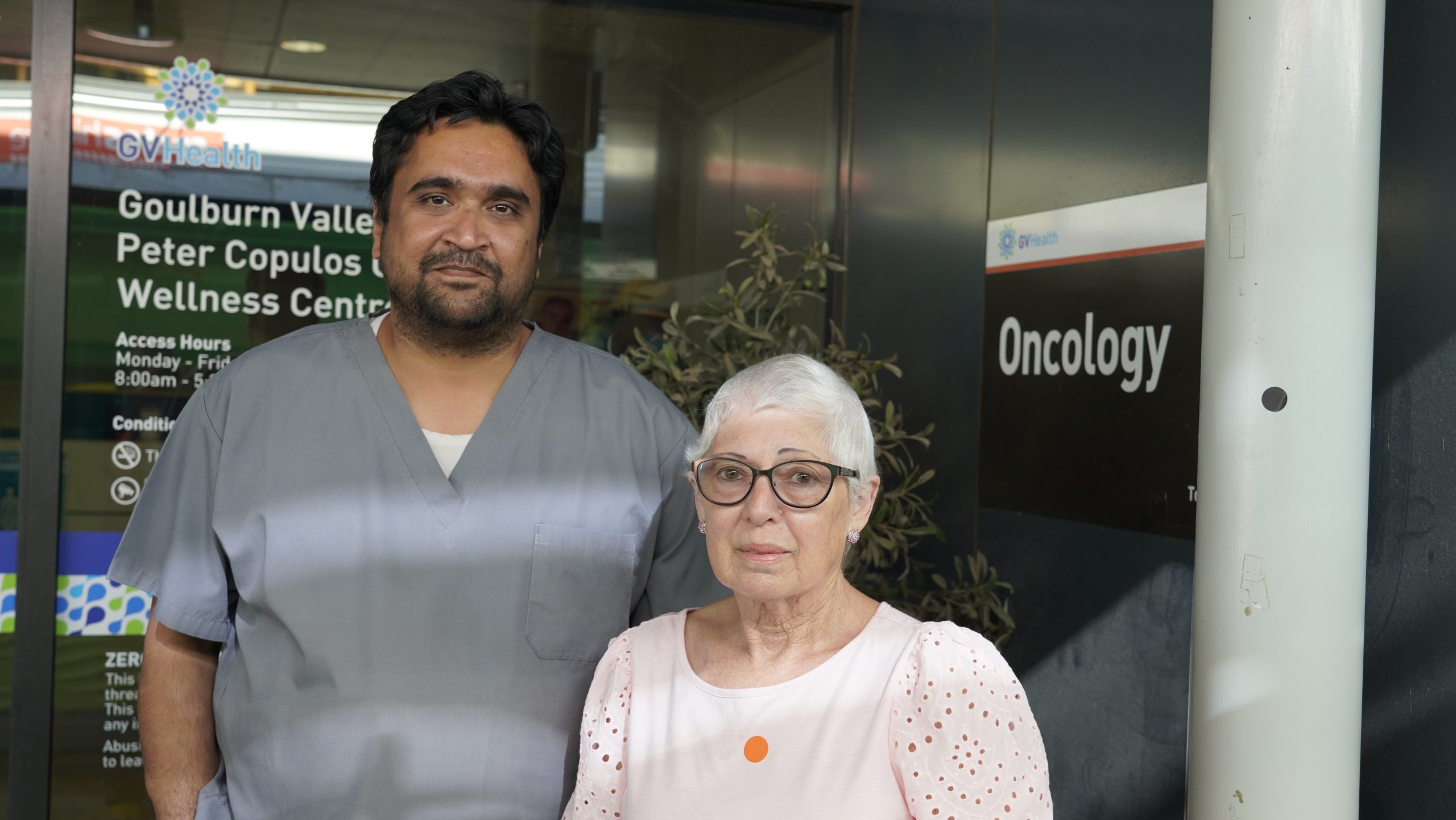Before February 2021, Jennifer Mordaunt would have described herself as healthy and having never really been sick.
That was before she was diagnosed with stage three ovarian cancer – Australia’s deadliest female cancer with no early detection test and symptoms similar to those women may encounter day-to-day.
Teal Ribbon Day on February 23 is part of Ovarian Cancer Awareness Month, aiming to shine a light on the disease and empower women to speak up when something doesn’t seem right.
Jennifer is from Nagambie and is a patient of GV Health’s oncology unit, now going through her second fight with ovarian cancer.
She never expected to be receive her diagnosis and is encouraging other women to be proactive about their health.
“Just for people to get checked, not be like me, I was very private with myself – you don’t need to feel sick to be unwell,” she said.
“It’s a silent thing that we all need to be aware of.”
Her diagnosis two years ago, aged 69, followed a hospitalisation for what she thought was a bad reaction to spicy food.
“Had I not had that I probably would never have known and I wouldn’t be here today,” Jennifer said.
She had a hysterectomy and underwent weekly chemotherapy treatments until August that year when things were looking better.
But six months later while on a holiday in Queensland, she got sick again and found out the cancer had returned.
“At the moment I’m still being treated, but not with chemotherapy because I reacted to it and got neuropathy, which is tingling in the hands and feet,” Jennifer said.
One of Jennifer’s three daughters has had breast cancer and she believes her mother, who died from a brain tumour, may have had it too although she was never diagnosed.
Genetics is one of the risk factors for ovarian cancer, with about 20 per cent of cases hereditary. People with a family or personal history of ovarian, breast, colon or endometrial/ uterine cancer may have an increased risk of developing ovarian cancer.
To address the often late diagnosis of ovarian cancer, GV Health specialist breast and gynaecological cancer nurse Mel Gilmour said women need to be their own biggest advocate, know their body and be aware of the symptoms.
“Patients will often go to their GP reporting individual symptoms or a couple together, but often it’s palmed off as other female issues,” Mel said.
“You know your body best. If you feel something is not right and you have persistent, ongoing symptoms, keep going back to your GP until you get an answer or for them to do further investigations.”
Most cases of ovarian cancer are detected at an advanced stage, making treatment more difficult.
Unlike cervical cancer, ovarian cancer isn’t picked up through a pap smear or prevented by the human papillomavirus (HPV) vaccine.
The only way to detect ovarian cancer is through a biopsy and the reality is for all cancers that the earlier it‘s picked up, the better the outcomes.
For ovarian cancer, the five-year survival rate is 48 per cent. In the Hume region – including the Greater Shepparton, Moira and Strathbogie local government areas – about 28 people are diagnosed with gynaecological cancers each year, the category ovarian cancer falls into.
There is support out there for women through Ovarian Cancer Australia’s Teal Support Program, which is celebrating its 20th year and links patients with an ovarian cancer nurse through telehealth.
“It’s a great resource for any woman diagnosed with ovarian cancer so they’ve got some online and over the phone support,” Mel said.
For information, visit www.ovariancancer. net.au
